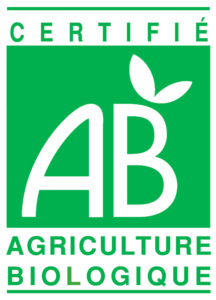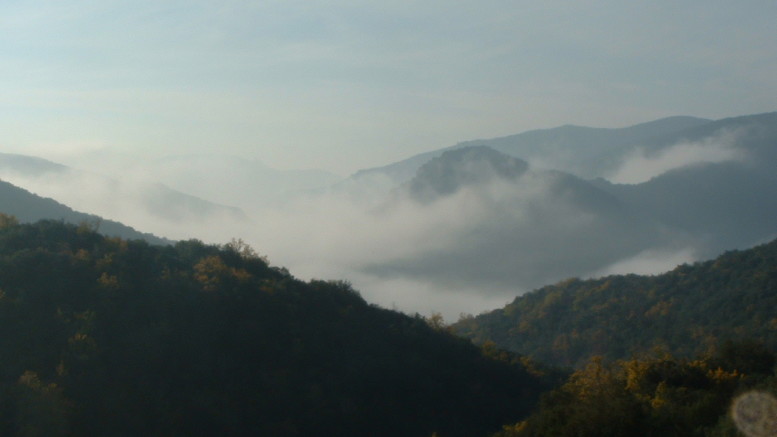Tourism is often thought to be the future for the economic development of the Corbieres. Traditionally a poor rural economy based on a mixture agricultural economy, vines, cereals, animal husbandry, and until the mid 20th century a bit of mining,the Corbieres has been in slow but remorseless decline since the 1950’s.
The push pull factors of economic boom in Northern France and mechanisation of agriculture made farming in the hills of the Corbieres less and less attractive with regularly paid work in the factories and forges of Northern France look more attractive to the younger generation. family farms fell into disrepair, related skills such as blacksmiths, cart makers, disappeared. Local bars closed. Maisons, our village had three bars, one for the Socialists, one for the Communists, and one smaller bar for the others, a hotel and a restaurant- though to be fair one was all three. The population high point of Maisons was in 1846 with 339 inhabitants, This more than halved to 157 by 1946, if I am up to date on village deaths it stands at around 36 today. (For a more detailed look at this see The decline of the Maisons and the Hautes Corbieres)
The result in our part of the Corbieres is that now less than 5% of our land is farmed. Villages were deserted, and until the arrival of Ryanair, ruined.
Ryanair had a major impact on villages throughout the Corbieres, suddenly the Languedoc was easily, and cheaply available to Northern Europeans. After sipping a glass of two of wine on a cold Winter night while reading Peter Mayle’s A Year in Provence, available in 28 languages, the idea of a cheap house in the South of France became realisable. However a trip to Grasse, the home of the French perfume industry; reveals a painful reality not captured in Mayle’s smugathon.
From Grasse you have an amazing view down to Cannes and St Tropez, and every inch of the pines forest to the coast is concreted. Provence needs a sign then says full, oh and massively over priced too boot.
The result was that people started looking further South into Languedoc and Rousillon; French Catalonia. In ever growing circles around the Ryanair airports, Caracassonne and Perpignan, less so Montpellier, which has it’s own economic rhythm, though the back country and the high Herault has also been effected, villages were bought up by Northerners. Ruined village houses were renovated. Old houses with thick walls and small windows, the locals hide from the heat, Northerns bask in it, had rood terraces punched through their tiles, and large window knocked into their walls. Swimming pools filled courtyards, water supplies started drying up. A standard dinner table conversation amongst Northeners was how terrible and unreliable local builders were. Local builders started throwing parties.
Villages that were ruined and empty are now renovated and suddenly filled up, for July and August, the other ten months of the year they return to been devoid of inhabitants.
Of course not very house bought by a Northern is a second home, there are both younger people looking to build a new life for themselves in the Corbieres and older folk looking to retire in a rural ideal. But North South migration is another relate but separate issue I will return to in another article.
Looking at the latest available tourist figures from Aude Department (You can download the PDF here bilan-touristique-2016 ) the vast majority of tourist visits are to the coast and to Caracassonne La Cite. The proportion of visits even the most popular ‘Cathar’ castles get is way down on the list.
The Languedoc coast was developed in the late 6O’s and 70’s as series of holiday resorts for the Northern working classes. The advent of affordable and fast rail links, well until Nimes anyway, combined with low cost accommodation and a ready supply of sun and fast food, as well as holiday entertainment for the kids, made the Languedoc an ideal holiday destination for those on a budget.
It also makes for horrendous property development, take Narbonne Plage or Port Leucate not to mention Barcarrès . But they do what is says on the can, a cheap holiday for all the family in the sun.
The coast provides revenue for hotel chains, property developers, restaurant owners, campsites and thousands of low paid seasonal jobs for students, locals and travellers alike. And then at the end of September they close up shop, the jobs disappear along with the tourists and most of the coast reverts to being ghost towns.
The Hautes Corbieres does benefit a bit from being the hinterland of the coast, we get a regular number of bikers, both mechanical and human powered, walkers, a few bird watchers looking out for our raptors, camping car tourists as well as Gite renters during the summer. Our Castles, Queribus, Aguilar, Peyrepertuse, Villerouge_Termenes and Termes generate enough tourism to keep a handful of seasonal restaurants going in their neighbouring villages, as well as a couple of fast food joints and bars.
Our tourist infrastructure is pretty basic, and seasonal. There has been a start at generating activity based holidays, Le Cheval N’Arquois and the Cheval Cathar do pony trekking, the Velo Tauch lads over in Tuchan rent our electric and fat wheeled bike for cross country riding, quad safaris occasional rip through our peace. There is much more potential for caving, meditative retreats, local cooking courses, guided flora and fauna, and of course hunting ( see Thoughts on the Chasse au Sangliers for my views on that). The area has a huge amount of potential, the hot water thermals in Paziols could be developed into some hippy dippy alternative treatment centre thing. But what all these projects need is money, experienced entrepreneurs and time. All but the last we lack at the moment.
What has been an interesting development is the establishment of quality restaurants within driving distance of the coast following on from the Auberge du Vieux Puits with Gilles Goujon and his three Michelin stars, menus start at 120 euro and climb, Eric Delalade has created a quality restaurant, Place des Marches, in Villeseque des Corbieres and I hear Chez Prano in Durban is turning into a gem.
So while there are signs that a nascent tourist industry is arriving what is clear is that it cannot provide the job security, or for that matter decent jobs, that the young of the area need. While tourism can provide a part of the local economy it is not the basis of a vibrant, sustainable economy.
 For that the Hautes Corbieres which historically been an agricultural economy there is a clear need for a diversified economy, but the re development of an agricultural base is the most logical starting point. With so little of the existing land exploited and much left fallow for over two decades the possibility of new projects to pass direct to organic production is enormous. Organic regulations requite a three year transition period for land already in production, but proven un-used land can pass direct to organic, like we did. This means that say an organic poultry farm can be up and running in 6 months, new poultry stock even if bought from an organic supplier require a six mot probation period. Organic apiculture would thrive with the bees having access to the vast garrigue and forests of the area. Organic pig farming, while requiring more land than industrial pork production can still be viable on 2-4 hectares of land. Organic cereal production, to provide the feed for animals and to produce flour for local bakers can be done on a relatively small scale although the initial investment in machinery is higher. Bakers and butchers, a local abattoir, with more animals in the area it would be more viable to set up a local veterinary service.
For that the Hautes Corbieres which historically been an agricultural economy there is a clear need for a diversified economy, but the re development of an agricultural base is the most logical starting point. With so little of the existing land exploited and much left fallow for over two decades the possibility of new projects to pass direct to organic production is enormous. Organic regulations requite a three year transition period for land already in production, but proven un-used land can pass direct to organic, like we did. This means that say an organic poultry farm can be up and running in 6 months, new poultry stock even if bought from an organic supplier require a six mot probation period. Organic apiculture would thrive with the bees having access to the vast garrigue and forests of the area. Organic pig farming, while requiring more land than industrial pork production can still be viable on 2-4 hectares of land. Organic cereal production, to provide the feed for animals and to produce flour for local bakers can be done on a relatively small scale although the initial investment in machinery is higher. Bakers and butchers, a local abattoir, with more animals in the area it would be more viable to set up a local veterinary service.
Abri culture, fruit, olive and, nuts are all viable possibilities, though the start up times are longer.
Vegetable horticulture both under plastic and in the open air can be set up and in production in under a year if installed in areas of plentiful water.
We are already seeing the expansion of aromatic herb production, with the produce being transformed locally into essential oils dried herbs, perfumes and treatments. Shared alembics, drying facilities, labos are all possible to reduce or collectivise investment.
All these initiatives need a lot less investment that tourist projects and would greatly contribute to creating a sustainable economy. A thriving diversified agricultural base can also make the area more attractive to tourists through projects like Accueil Paysan, En Ferme en Ferme Audois
Other ideas such as a stable high speed internet to allow home working, a growing trend for middle class jobs, renewable energy projects with the revenue being used for economic development investment, a sustainable forestry management programme could all help both to develop the local economy, attract more young people and lead to more state services, such as schools, local health services and improve the tax base for local municipalities.
Tourism has a role to play as part of a renovation project for the Hautes Corbieres, it is not the most important part or most interesting part of the project, more an interesting additional bonus.


totally in agreement with your point… but beware of such ideas as ” The area has a huge amount of potential, the hot water thermals in Paziols could be developed into some hippy dippy alternative treatment centre thing” ! As far as tourism goes, Nature left to itself is SO MUCH better!
Because once the boom of organizing it and the buzz going round… investors , imbued with the tehcnology mystique come and prey, see: https://www.arte.tv/fr/videos/051616-000-A/la-montagne-nouvel-ibiza/
Hi Vero,
Agree the perfect solution is locally generated investment, with the associated revenue staying local. The problem is typical of under developed rural communities the world over, if you don’t have the money you can’t generate more. It was to try and solve that dilemma that I proposed the idea of creating a micro finance scheme using the revenue from wind farms to fund organic small scale agricultural start up, every euro the inter communities use to support agriculture is match funded by EDF so you get twice as much bang for your bucks. Sadly between between the conservationist and small minded local politicians that was a compete non starter.
I think we have some way to go before we face the Ibiza problem
All the best
Pete